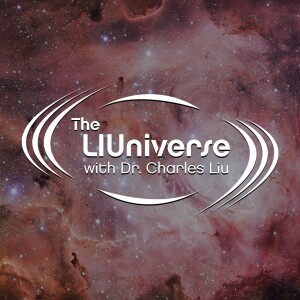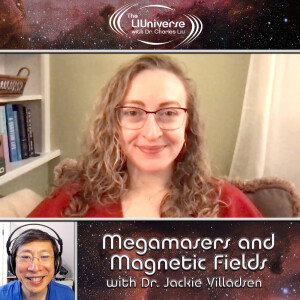
- Podcast Features
-
Monetization
-
Ads Marketplace
Join Ads Marketplace to earn through podcast sponsorships.
-
PodAds
Manage your ads with dynamic ad insertion capability.
-
Apple Podcasts Subscriptions Integration
Monetize with Apple Podcasts Subscriptions via Podbean.
-
Live Streaming
Earn rewards and recurring income from Fan Club membership.
-
Ads Marketplace
- Podbean App
-
Help and Support
-
Help Center
Get the answers and support you need.
-
Podbean Academy
Resources and guides to launch, grow, and monetize podcast.
-
Podbean Blog
Stay updated with the latest podcasting tips and trends.
-
What’s New
Check out our newest and recently released features!
-
Podcasting Smarter
Podcast interviews, best practices, and helpful tips.
-
Help Center
-
Popular Topics
-
How to Start a Podcast
The step-by-step guide to start your own podcast.
-
How to Start a Live Podcast
Create the best live podcast and engage your audience.
-
How to Monetize a Podcast
Tips on making the decision to monetize your podcast.
-
How to Promote Your Podcast
The best ways to get more eyes and ears on your podcast.
-
Podcast Advertising 101
Everything you need to know about podcast advertising.
-
Mobile Podcast Recording Guide
The ultimate guide to recording a podcast on your phone.
-
How to Use Group Recording
Steps to set up and use group recording in the Podbean app.
-
How to Start a Podcast
-
Podcasting
- Podcast Features
-
Monetization
-
Ads Marketplace
Join Ads Marketplace to earn through podcast sponsorships.
-
PodAds
Manage your ads with dynamic ad insertion capability.
-
Apple Podcasts Subscriptions Integration
Monetize with Apple Podcasts Subscriptions via Podbean.
-
Live Streaming
Earn rewards and recurring income from Fan Club membership.
-
Ads Marketplace
- Podbean App
- Advertisers
- Enterprise
- Pricing
-
Resources
-
Help and Support
-
Help Center
Get the answers and support you need.
-
Podbean Academy
Resources and guides to launch, grow, and monetize podcast.
-
Podbean Blog
Stay updated with the latest podcasting tips and trends.
-
What’s New
Check out our newest and recently released features!
-
Podcasting Smarter
Podcast interviews, best practices, and helpful tips.
-
Help Center
-
Popular Topics
-
How to Start a Podcast
The step-by-step guide to start your own podcast.
-
How to Start a Live Podcast
Create the best live podcast and engage your audience.
-
How to Monetize a Podcast
Tips on making the decision to monetize your podcast.
-
How to Promote Your Podcast
The best ways to get more eyes and ears on your podcast.
-
Podcast Advertising 101
Everything you need to know about podcast advertising.
-
Mobile Podcast Recording Guide
The ultimate guide to recording a podcast on your phone.
-
How to Use Group Recording
Steps to set up and use group recording in the Podbean app.
-
How to Start a Podcast
-
Help and Support
- Discover

The LIUniverse with Dr. Charles Liu
Science:Astronomy

What’s the difference between a maser and a megamaser? How does uncertainty lead science to its newest discoveries? To find out, Dr. Charles Liu and co-host Allen Liu welcome back radio astronomer Dr. Jackie Villadsen, a professor at Bucknell University currently researching star/planet magnetic interaction in exoplanet systems.
As always, though, we start off with the day’s joyfully cool cosmic thing. In November 2024 a group of researchers announced that they’d found a series of megamasers around the supermassive black hole system NGC1068, and that for the first time ever, they’d measured the polarization of the water megamasers. Jackie, who studies a different kind of maser, explains what they are (“just a really, really big laser pointer in space that shoots out radio waves or microwaves”) and why they’re important.
Jackie studies masers around nearby stars, which are much smaller than megamasers that can be seen from other galaxies. Allen shares the fact that some megamasers can be around half a parsec (trillions of miles) across and bigger than our entire solar system.
Then it’s time for our first question for Jackie. It’s from Guadalupe, who says, “I recall reading or watching a video that stated there is liquid on Mars beneath an "ice cap" - is that right?” According to Dr. Villadsen, the question is right on the cutting edge of our understanding, with promising evidence emerging right now that suggests the answer might be yes, although more investigation is necessary before we can confirm it.
After our break, Jackie tells us about the research she’s doing using the Karl G. Jansky Very Large Array (VLA) while on her current sabbatical. You’ll hear about Karl Jansky’s breakthrough discovery of radio waves from space made nearly 100 years ago. Jackie brings us up to speed on the evolution of radio astronomy and why we’re able to get more data than ever out of the same telescopes.
Our next question comes from Bryant: “What do you think would have happened if the universe was created a bit earlier than usual? Would anything have changed?” It turns out, there’s more than one way to look at this speculative question, and Jackie and Chuck ponder the possibility of having miscalculated the age of the universe and the impact that an older universe would have on the rate of universal expansion, the perception of dark energy, and more.
Next up, Jackie tells us about the research she and her colleagues (including grad students!) have been involved with looking for star/planet magnetic interaction in nearby exoplanet systems. The search is inspired by the interaction in our solar system between the magnetic field of Jupiter and two of its closest moons, Io and Ganymede. While there are no confirmed examples yet, they already have one candidate out of the seven exoplanet systems they’ve studied.
Our next question comes from Samuel, who asks, “As an astrophysics professor, how is the work-life balance and overall lifestyle of a researcher? My dream is to become a mechanical engineer in the field of astrophysics.” Jackie explains how she approaches work, and what it took to reach the balanced state she’s in now compared to when she was a grad student.
We end the episode with another of Jackie’s book recommendations. Last time she was here she recommended the adult sci-fi romance, “The Ladies Guide to Celestial Mechanics” by Olivia Waite. This time, it’s another adult sci-fi romance with a bit of a mystery woven through it, “The Stars Too Fondly” by Emily Hamilton. The title is taken from a poem, “The Old Astronomer to His Pupil” by Sarah Williams, from which Jackie reads a snippet. She and Chuck also discuss one of their favorite poems, “The Learned Astronomer,” by Walt Whitman, found in his collection, “Leaves of Grass.”
We hope you enjoy this episode of The LIUniverse, and, if you do, please support us on Patreon.
Credits for Images Used in this Episode:
- Radar sounding of Mars subsurface - Cross-section of a portion of the north polar ice cap of Mars, derived from satellite radar sounding – Mars Express/ESA
- Martian north polar cap as it appeared to the Mars Global Surveyor (MGS) Mars Orbiter Camera (MOC) in early northern summer. – Credit: NASA/JPL/MSSS
- The Very Large Array (VLA). – Credit: NRAO/AUI/NSF
- Very Large Array, pictured with meteor. – Credit: Bettymaya Foott, NRAO/AUI/NSF
- Animation of Jupiter’s magnetosphere. – Credit: NASA
- Animation of Jupiter’s aurora. – Credit: NASA/Hubble
#theliuniverse #charlesliu #allenliu #sciencepodcast #astronomypodcast #jackievilladsen #maser #megamaser #vla #verylargearray #exoplanets #jupiter #magneticfield #magnetosphere #aurora #wateronmars #blackholes #adultscifi #romance #thestarstoofondly #emilyhamilton #theoldastronomertohispupil #sarahwilliams #thelearnedastronomer #waltwhitman #leavesofgrass
More Episodes
 2025-04-05
2025-04-05
 4.5k
4.5k
 2025-02-22
2025-02-22
 4.5k
4.5k
 2025-01-25
2025-01-25
 4.3k
4.3k
 2025-01-04
2025-01-04
 4.5k
4.5k
 2024-11-23
2024-11-23
 3.6k
3.6k
 2024-11-09
2024-11-09
 4.3k
4.3k
 2024-10-26
2024-10-26
 2.9k
2.9k
 2024-10-19
2024-10-19
 3.5k
3.5k
 2024-09-07
2024-09-07
 4.4k
4.4k
 2024-08-24
2024-08-24
 5.0k
5.0k
 2024-08-10
2024-08-10
 3.1k
3.1k
 2024-07-20
2024-07-20
 3.0k
3.0k
 2024-07-06
2024-07-06
 3.5k
3.5k
Create your
podcast in
minutes
- Full-featured podcast site
- Unlimited storage and bandwidth
- Comprehensive podcast stats
- Distribute to Apple Podcasts, Spotify, and more
- Make money with your podcast
It is Free
- Privacy Policy
- Cookie Policy
- Terms of Use
- Consent Preferences
- Copyright © 2015-2025 Podbean.com



